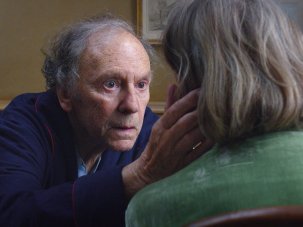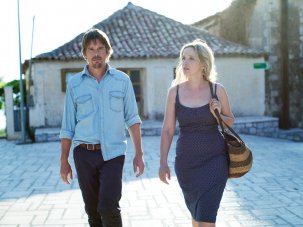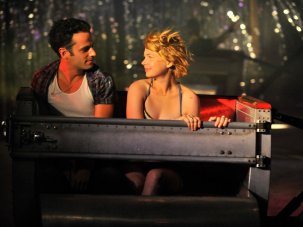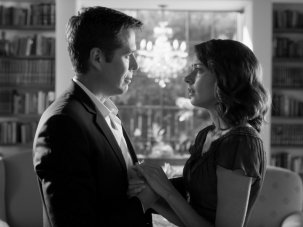from our November 2013 issue
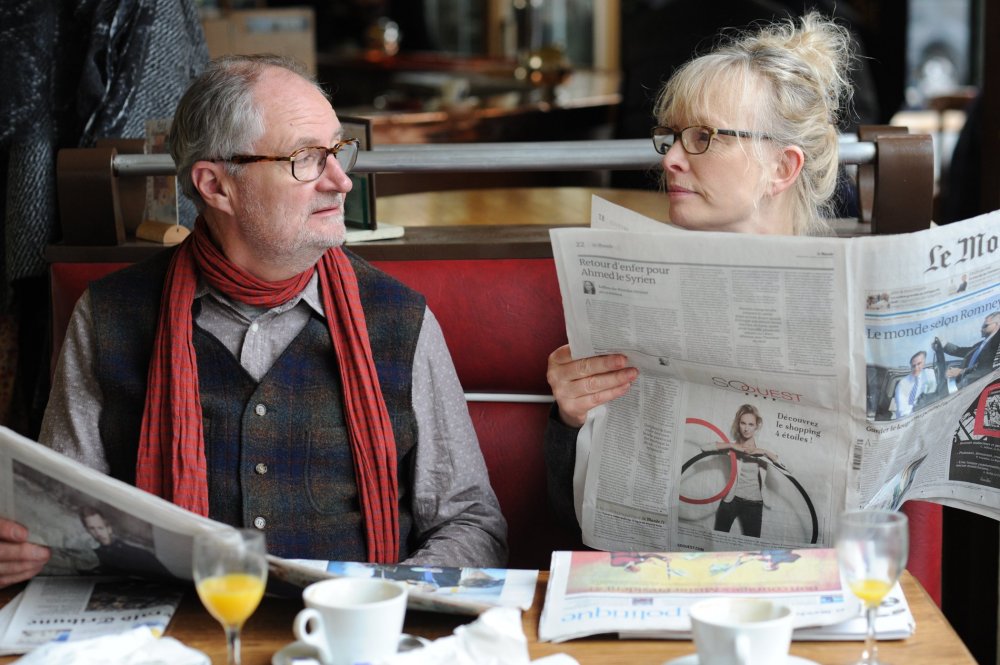
Seven years ago, director Roger Michell and screenwriter Hanif Kureishi scored a hit with the Oscar-nominated Venus – a meditation on old age that was a showcase for Peter O’Toole. They return to the subject of age and its frustrations with Le Week-end, this time providing plum roles for Jim Broadbent and Lindsay Duncan as a couple in late middle age who travel to Paris to try to relive their honeymoon. With their stale relationship brought into uncomfortable focus by the happy memories of the past, the weekend looks set to be more rom-tradge than romcom. But the film belies its glum premise and unpromising title: perfectly cast and utterly charming, it turns out to be full of hilarious exchanges and unexpected treats.
| United Kingdom 2013 Certificate 15 92m 59s Crew Cast Dolby Digital Distributor Curzon Film World |
Broadbent plays Nick, the disappointed inheritor of a once promising future. His wife Meg (Duncan) has turned bitter with advancing age, refusing his attempts at intimacy and hectoring him for his lack of spontaneity. The basics of the relationship are beautifully sketched out in miniature in the very first scene, as they travel to Paris on the Eurostar: Nick fretful and fidgety, Meg irritable and insular.
It seems, at first, like a simple case of pathetic wimp versus super-bitch, but as the film unfolds and the characters reveal themselves, simplicity is no longer a viable response. Underneath their fussing and complaining, the couple are sharply funny; we are pulled in different directions, siding with each of them in turn, only to find our sympathies reversed again in the next scene. At times it’s hard to like either of them; then it’s hard not to love them both. As Meg and Nick seesaw between affection and exasperation for each other, the complexity of a 30-year marriage is elaborated in all its subtlety.
It’s Meg’s idea to throw caution to the wind and splash out on a fancy hotel and all the trimmings. They both know they can’t afford it, although Nick hasn’t yet told his wife about his problems at work. Their reckless spending spree both crystallises their personality differences and injects the narrative with a shot of jeopardy – how long before reality catches up with them?
But it’s when they bump into Nick’s old friend Morgan (played by Jeff Goldblum) that the choices they’ve made in their lives really come home to them. Morgan was a Cambridge contemporary of Nick’s and on paper he’s had the life Nick might have aspired to: living in Paris with his second wife, a successful writing career and a baby on the way. He is – even more gallingly – a really nice guy. But of course the first impression – prosperous American full of overbearing bonhomie – does not survive closer inspection. At the dinner party he hosts to celebrate the publication of his latest book, his neediness bleeds silently from every pore.

Such richness of characterisation comes first from the writing. Kureishi’s dialogue pops and zings, and he’s fearless when it comes to letting awkward moments hang.
But the performances give the film its wings. Broadbent’s effortless authenticity bestows Nick with an almost unbearable pathos, but he’s able to unearth reservoirs of fierce conviction too, and his uxoriousness, which seems at first to be his fatal flaw, turns out to be the key to his survival. Duncan, likewise, is a joy: like many female actors past the toothsome love-interest stage, she’s been starved recently of quality film roles but doesn’t waste a chance here to embody the brutal crisis of identity that comes with faded beauty.
In other company, Goldblum might have stolen the film with his electrifying third-act entrance; but he can roar, tic and goggle here to his heart’s content without upsetting the applecart. It’s hard to think of another actor who could combine such a full-throttle performance so perfectly with a subtext of neurosis.
Michell steers these star turns with grace and tact, stepping back to let key exchanges play out without interference, then moving the pace up a gear to maintain the momentum. Le Week-end is a small film in some ways – its ambitions are all in the fineness of the grain rather than the scope of the horizon – but it’s a warm and satisfying one. And it proves again that films made for grown-ups can be more nimble-footed and fresh-faced than anything aimed at the youth market.




